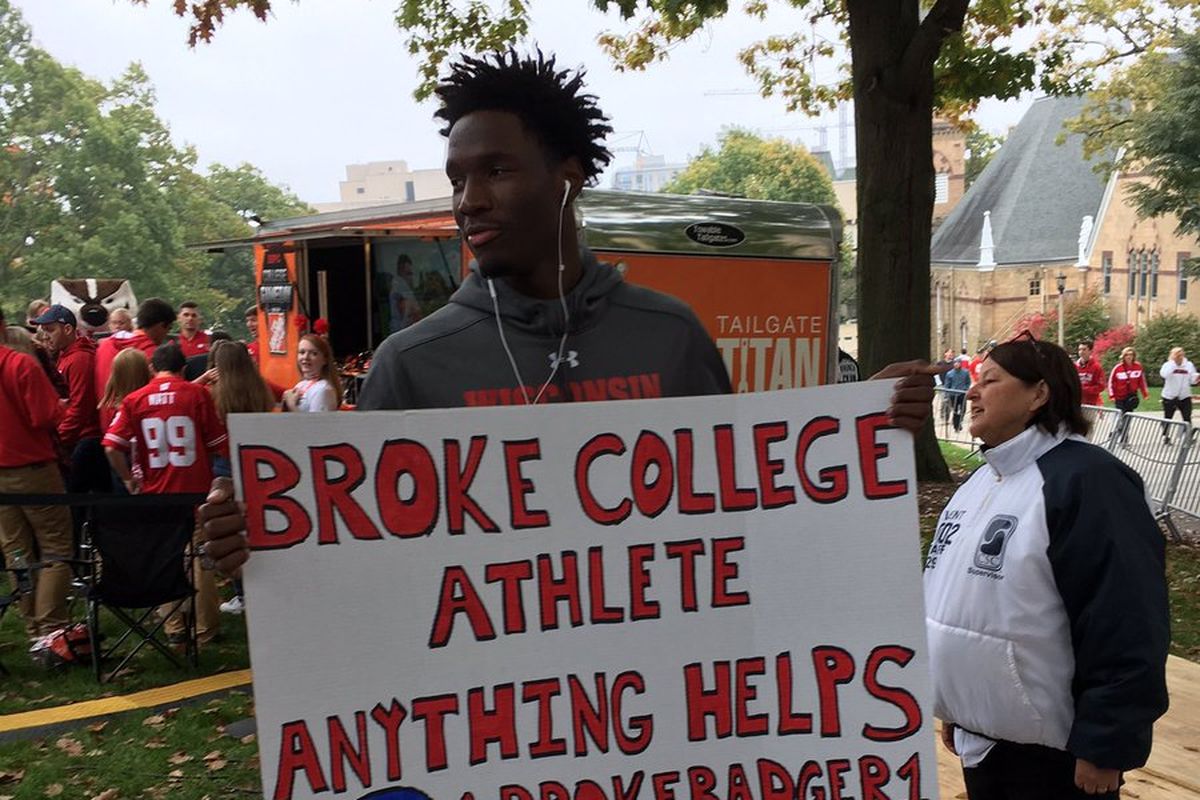
Despite being a star on the University of Wisconsin basketball team, Nigel Hayes is currently struggling to work his way into the NBA.
While a student at UW, Hayes became an advocate for the payment of student athletes. Hayes famously stood on campus holding a sign that said that he was a broke college athlete who needed help. As a new college student, I understand the financial difficulties of university and cannot believe how Hayes was able to deal with these problems as a student athlete. Two years have passed and Hayes’ problem has not been resolved and the NCAA continues to be attacked by lawsuits. Hayes’ protest, brought this issue to the forefront of American society, and current lawsuits, like O’Bannon v. NCAA, continue to ask whether it is just to deny student athletes financial compensation.
While Hayes stood with his sign protesting the NCAA, UW was netting millions of dollars from their athletic departments. That year, UW’s broadcasting rights deals with major networks net close to $100 million of profit for the university.
Based off the revenue generated for their universities, student athletes could legally be classified as employees of their universities. A court case in 1953 determined that this could be true under certain state laws.
The NCAA maintains that preserving the amateur status of athletes is crucial for maintaining an academic environment where academics are the primary priority of student athletes. Paying athletes would detract from this goal and would ultimately result in student athletes ignoring their educations.
However, the data from a 10-year study of major universities shows that student athletes are already performing worse in university and are not in environments where they can prioritize their academics. Student athletes are graduating at lower rates and have significantly lower GPAs then other students. However, this is often not the fault of the athletes. Practice schedules and other factors often make it difficult for student athletes to commit an appropriate amount of time to their academics.
Because of this, the NCAA can no longer justify refusing payment to its athletes based off the preservation of academics. Education, alone, is not fair compensation for student athletes if those athletes are obstructed from receiving a quality education. Just compensation must be in the form of financial compensation. While the O’Bannon v. NCAA lawsuit established a trust system that allows for universities to place up to $5,000 into trusts for students, this number does not reflect the actual financial impact of athletes to their universities. A new system that calculates the individual financial impact of student athletes would be able to justly determine an amount of money that athletes should receive. The earnings would then be placed, by their universities, in a trust that could only be accessed sparingly. Additionally, students would be incentivized to succeed in their classes with more access to their trusts. This system would allow for the fair compensation of student athletes, while preserving the ideals of integrating academics and athletics.
By Jonathan Feldman Greene
Jonathan Feldman Greene was born and raised in Los Angeles and now attends Columbia University. He spent a gap year in Israel before coming to school. In his spare time, he enjoys reading and playing sports.